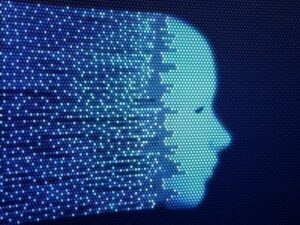The California software specialist GBL Systems Corp. has signed a Cooperative Research and Development Agreement (CRADA) with the US Navy. GBL is specifically teaming up with the Port Hueneme, California Division of the Naval Surface Warfare Center, while the agreement itself will cover biometric authentication, digital forensics, and augmented reality training.

The results of the collaboration will be demoed at an open house for the Advanced Naval Technology Exercise (ANTX) and the Coastal Trident Port and Maritime Security Program that will take place at Fathomwerx Lab in September. The project is intended to facilitate the creation of new commercial technologies that can support US Navy operations.
The biometric component of the project comes courtesy of GBL, whose portfolio includes the FutureOrb identity management system. FutureOrb uses facial recognition for physical and logical access control, and will be deployed at the entrance of the open house to identify guests who have registered for the event. However, biometric authentication will not be mandatory, so guests can opt for a manual check in if they so desire.
The scope of the biometric program could also expand in future phases. One of the NSWC’s principal investigators has patented an authentication system that uses wrist vein images for identification, and the researchers may try to optimize that technology for Naval applications.
Augmented and virtual reality technologies, on the other hand, will be used primarily for training purposes. The researchers will use GBL’s AR tech to write content that can teach people in the Navy how to use certain systems, or to simulate scenarios that they may be likely to encounter. The use of AR and VR allows them to experience those situations in a more immersive (but lower risk) environment.
Finally, the Navy is hoping to use GBL’s Cyber Forensics Integrated Triage Tool (Cyber-FITT) to strengthen its security posture. Cyber-FITT is a portable digital forensics tool that allows investigators to evaluate another device while in the field. That, in turn, offers a better sense of the risks associated with a computer hard drive or a memory card during operations with a strong digital component.
During the open house, GBL will highlight the results of a Cyber-FITT pilot program conducted in collaboration with the Ventura County District Attorney’s Office, which used the tool while executing search warrants. The Navy believes that it will become more useful as it starts to rely more heavily on mobile devices.
The Navy put out a call for vendors for a research program at the tail end of 2021. The military branch has previously tried to use biometric signatures to cut down on physical paperwork.
–
July 20, 2022 – by Eric Weiss








Follow Us